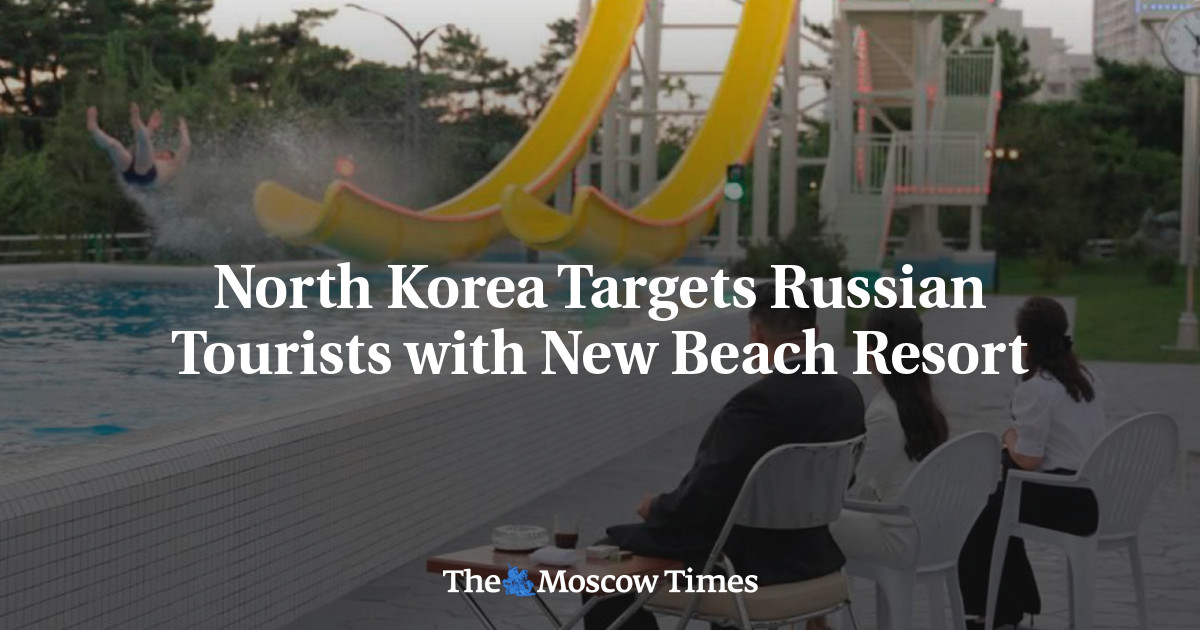
North Korea Courts Russian Tourists with New Kalma Coastal Resort
As domestic tourism opens in July, North Korea is signaling a strategic shift towards attracting Russian visitors to its newly completed Wonsan-Kalma resort, a move potentially linked to strengthening ties amidst geopolitical shifts.
A Symbol of Resilience and a New Tourism Focus
North Korea’s ambitious Wonsan-Kalma coastal tourist zone is nearing completion, with the resort slated to open to domestic travelers in July. Spanning a four-kilometer stretch of coastline, the development represents a significant investment in the nation’s tourism infrastructure, featuring hotels, restaurants, shopping centers, and a water park. Leader Kim Jong Un has personally championed the project, hailing it as a “prelude to the new era” of North Korea’s tourism industry and a symbol of national pride and economic resilience. The resort boasts accommodations for approximately 20,000 people, ranging from budget options to VIP cottages, catering to a diverse range of potential visitors.
The opening ceremony for the Kalma resort was notable for the presence of Russia’s ambassador and embassy staff, while conspicuously lacking representation from China, traditionally North Korea’s primary trade partner and tourism benefactor. This deliberate inclusion signals a clear intention to target the Russian market, a strategy that aligns with the recent strengthening of relations between Pyongyang and Moscow. The timing of the resort’s opening coincides with the resumption of cross-border rail service between the two countries and a request from a Russian airline to launch a direct air route between Moscow and Pyongyang. This indicates a concerted effort to facilitate increased travel and economic exchange between North Korea and Russia.
The project’s completion has been delayed by several years, originally slated for completion in April 2019, but hampered by sanctions-related difficulties in acquiring construction materials and the disruptions caused by the COVID-19 pandemic. Despite these challenges, the resort’s opening demonstrates North Korea’s determination to develop its tourism sector, even in the face of international isolation. The location of the resort, near a former missile testing site, adds another layer of complexity to the project, highlighting the dual nature of North Korea’s economic and military priorities.
Geopolitical Implications: Russia’s Role and Ukraine’s Shadow
The shift towards courting Russian tourists is widely seen as a consequence of the evolving geopolitical landscape. The deepening alliance between North Korea and Russia has been fueled by shared opposition to the United States and a mutual interest in circumventing international sanctions. South Korea’s Unification Ministry suggests that Russia may have provided support for the Wonsan-Kalma resort construction, potentially as part of a reciprocal arrangement for North Korea’s support in Moscow’s war against Ukraine. This speculation underscores the increasing interconnectedness of regional conflicts and the potential for strategic partnerships to emerge in response to global power dynamics.
The focus on attracting Russian tourists also reflects a pragmatic response to the limitations imposed by the ongoing COVID-19 pandemic and the resulting restrictions on international travel. With few foreign tourists currently permitted to enter North Korea, Russia represents a viable and readily accessible market. Russian tour companies, such as Vostok Intur, have already arranged week-long trips to the resort, scheduled to begin on July 7th, demonstrating the immediate potential for increased tourism from Russia. This reliance on Russian tourism, however, raises questions about the long-term sustainability of the resort and its vulnerability to shifts in the political relationship between the two countries.
While the focus is currently on Russian visitors, the appeal of North Korea as a unique and unconventional travel destination remains. As Elliott Davis, director of Uri Tours, notes, the country holds a “niche appeal” for certain travelers seeking an experience unlike any other. The combination of a familiar setting – a beach resort – within the unique cultural context of North Korea presents a compelling proposition for adventurous tourists. However, access to the country remains tightly controlled, and the political risks associated with travel to North Korea are significant.
Key Takeaways
- North Korea is opening its Wonsan-Kalma coastal resort to domestic tourists in July, with a clear focus on attracting Russian visitors.
- The presence of the Russian ambassador at the opening ceremony signals a strategic shift towards strengthening tourism ties with Russia.
- The resort’s development was delayed by sanctions and the COVID-19 pandemic, but its completion demonstrates North Korea’s commitment to expanding its tourism sector.
- The growing alliance between North Korea and Russia, potentially involving reciprocal support related to the war in Ukraine, is driving this shift in tourism focus.
- Despite the focus on Russian tourists, North Korea retains a “niche appeal” for adventurous travelers seeking a unique and unconventional experience.







